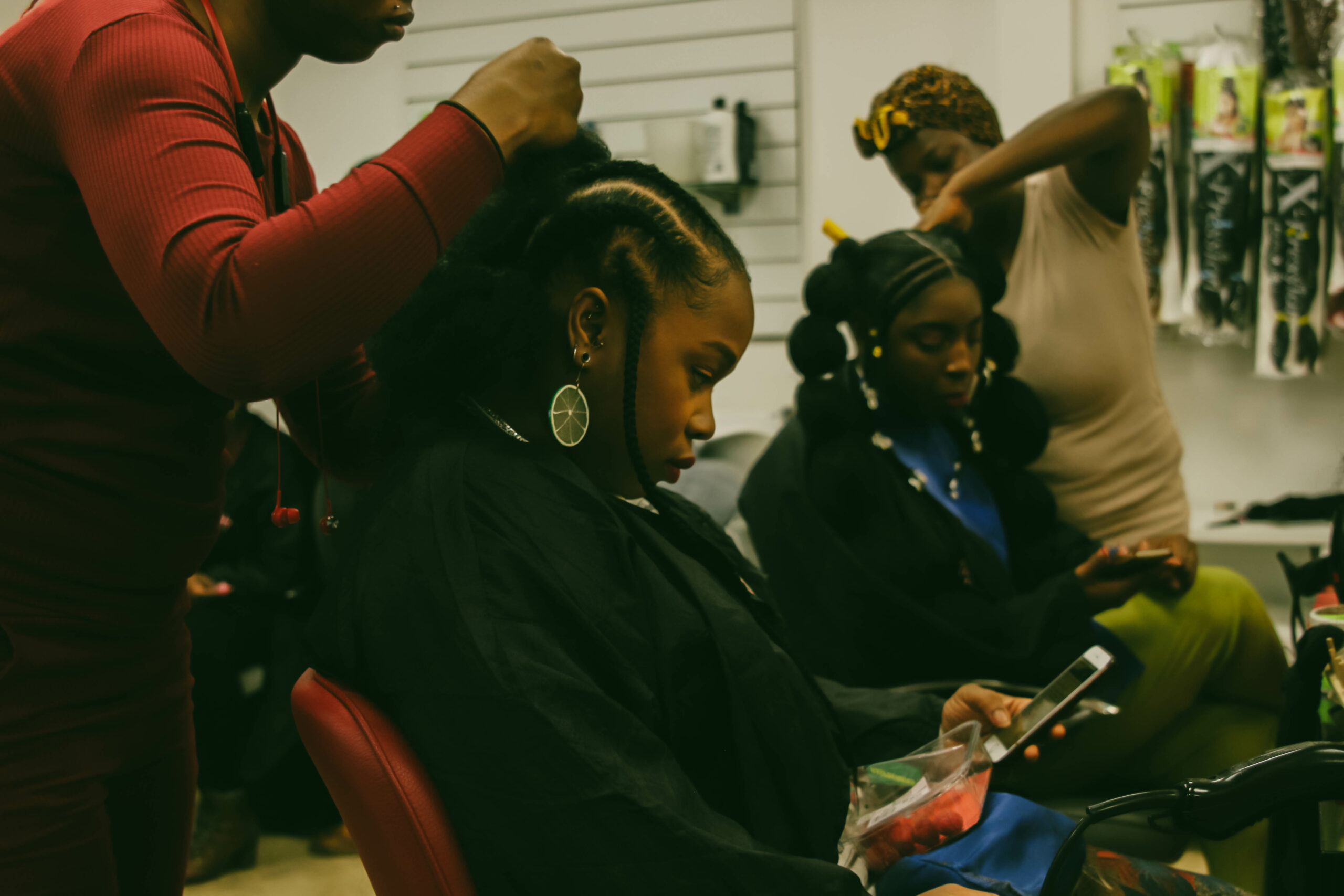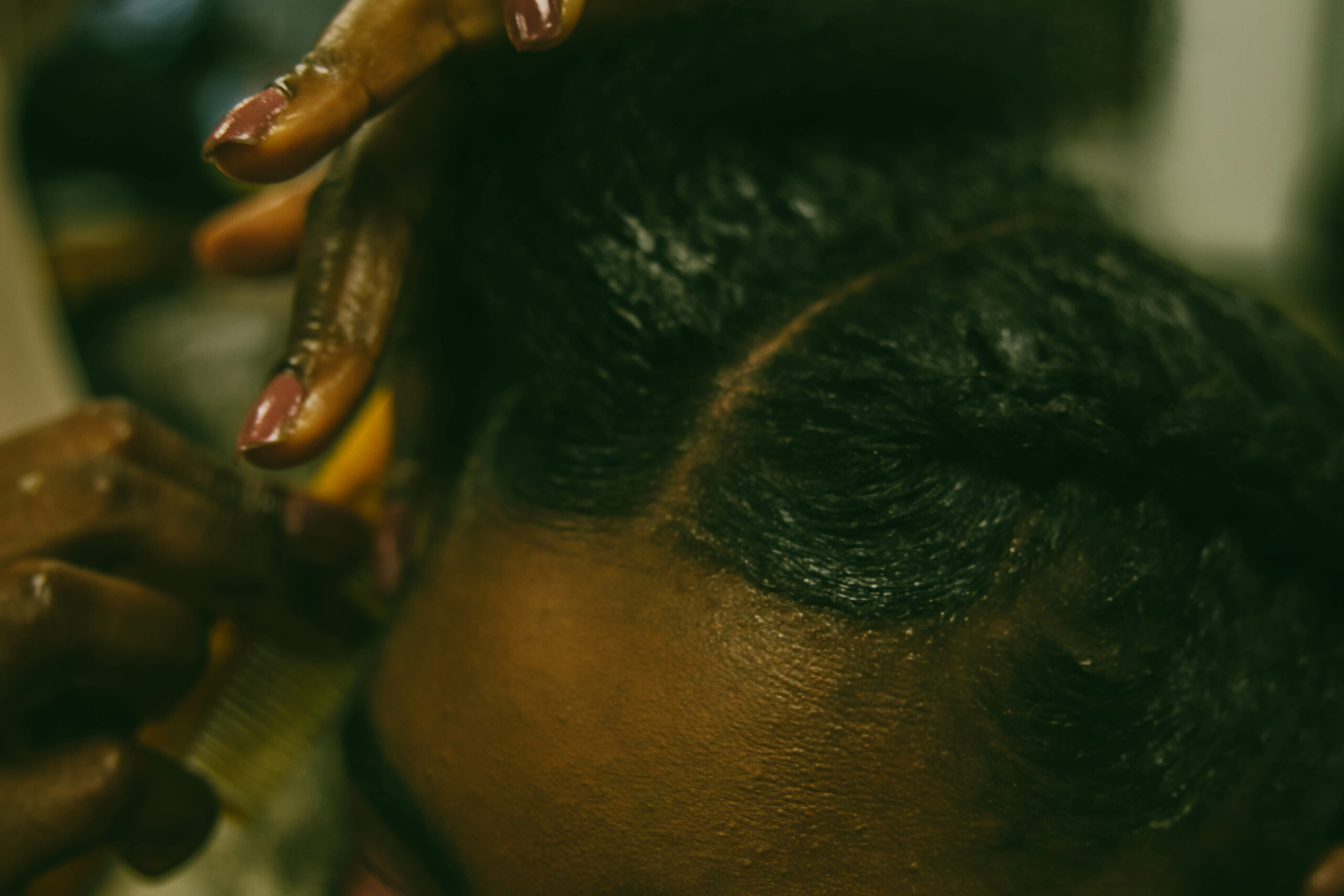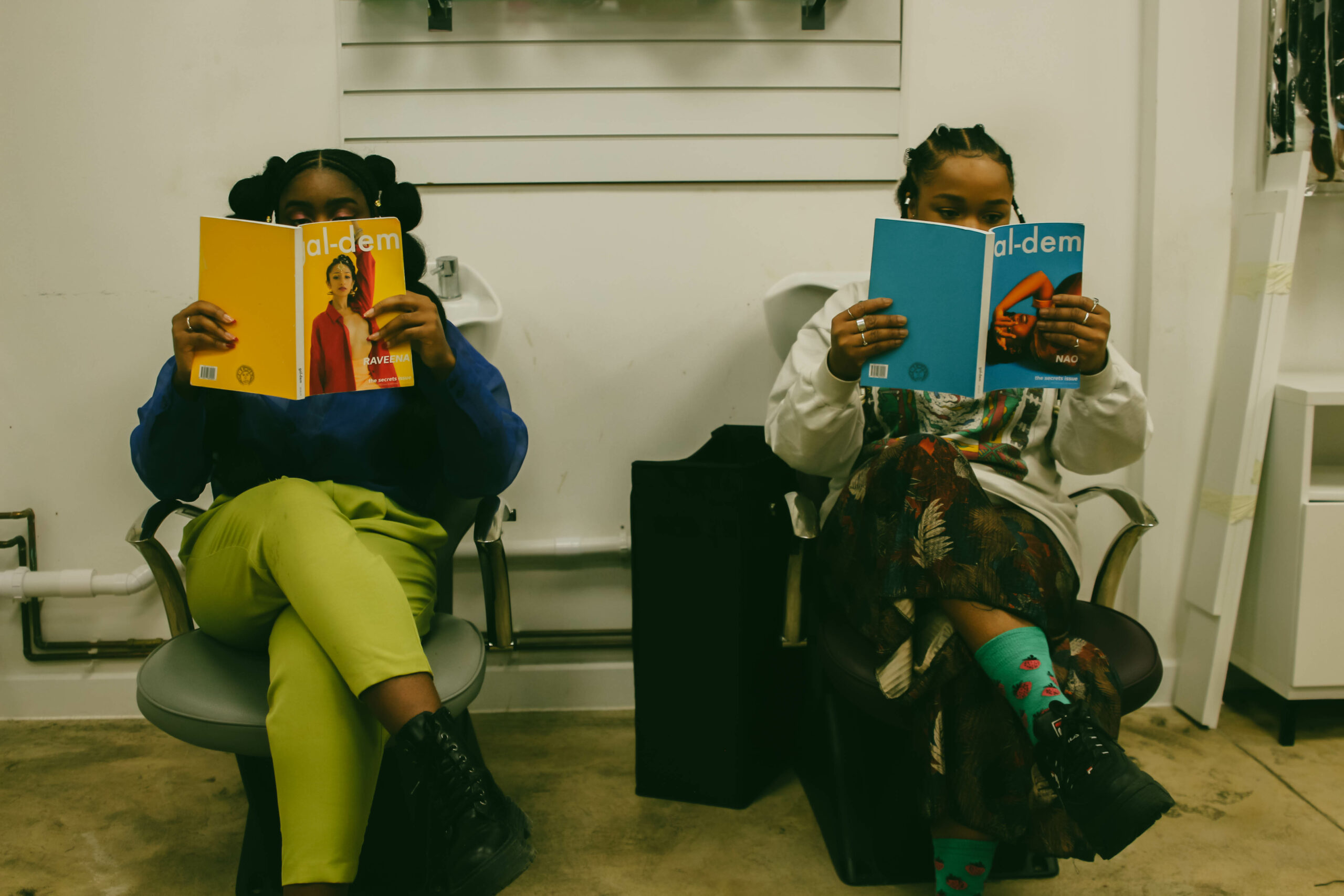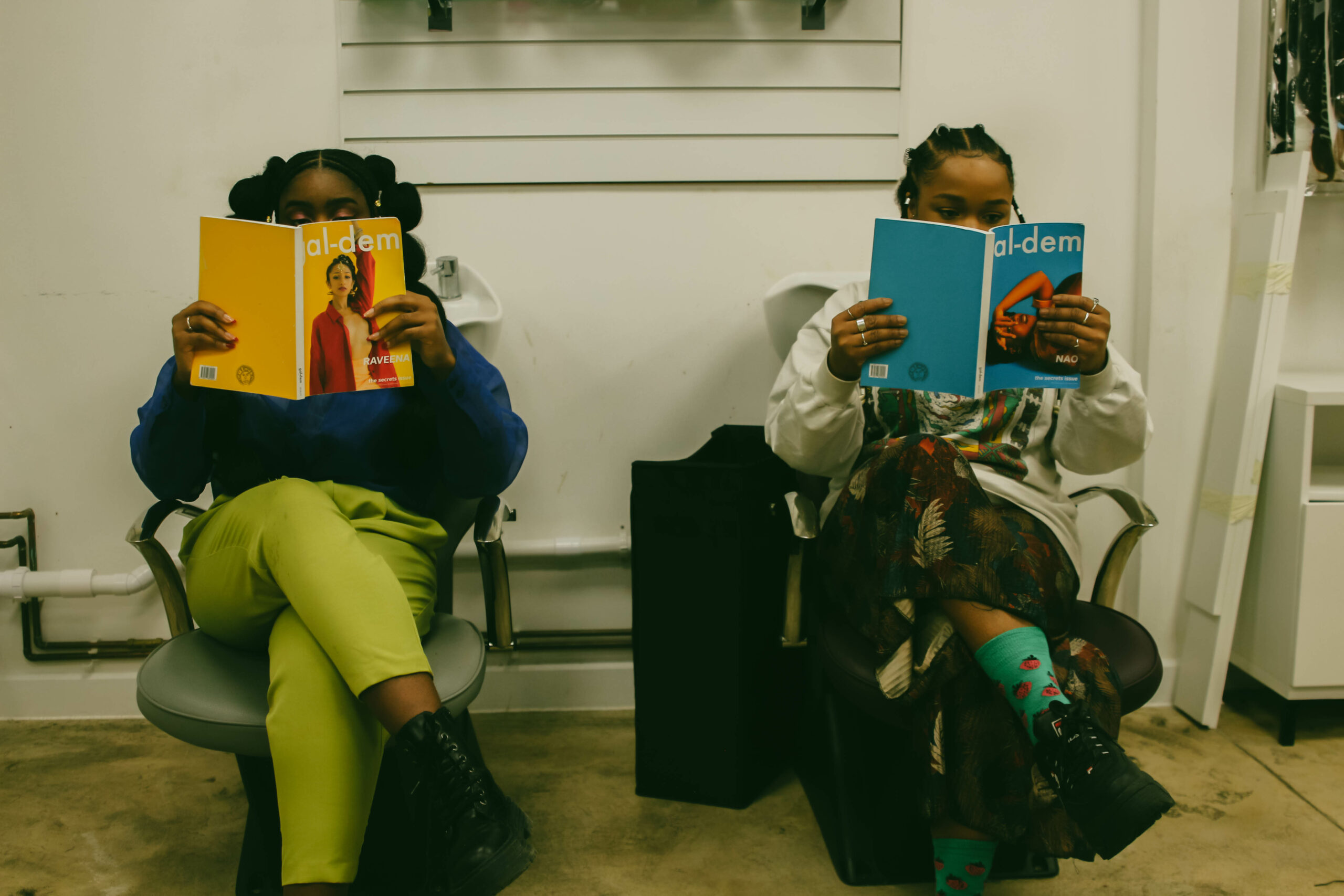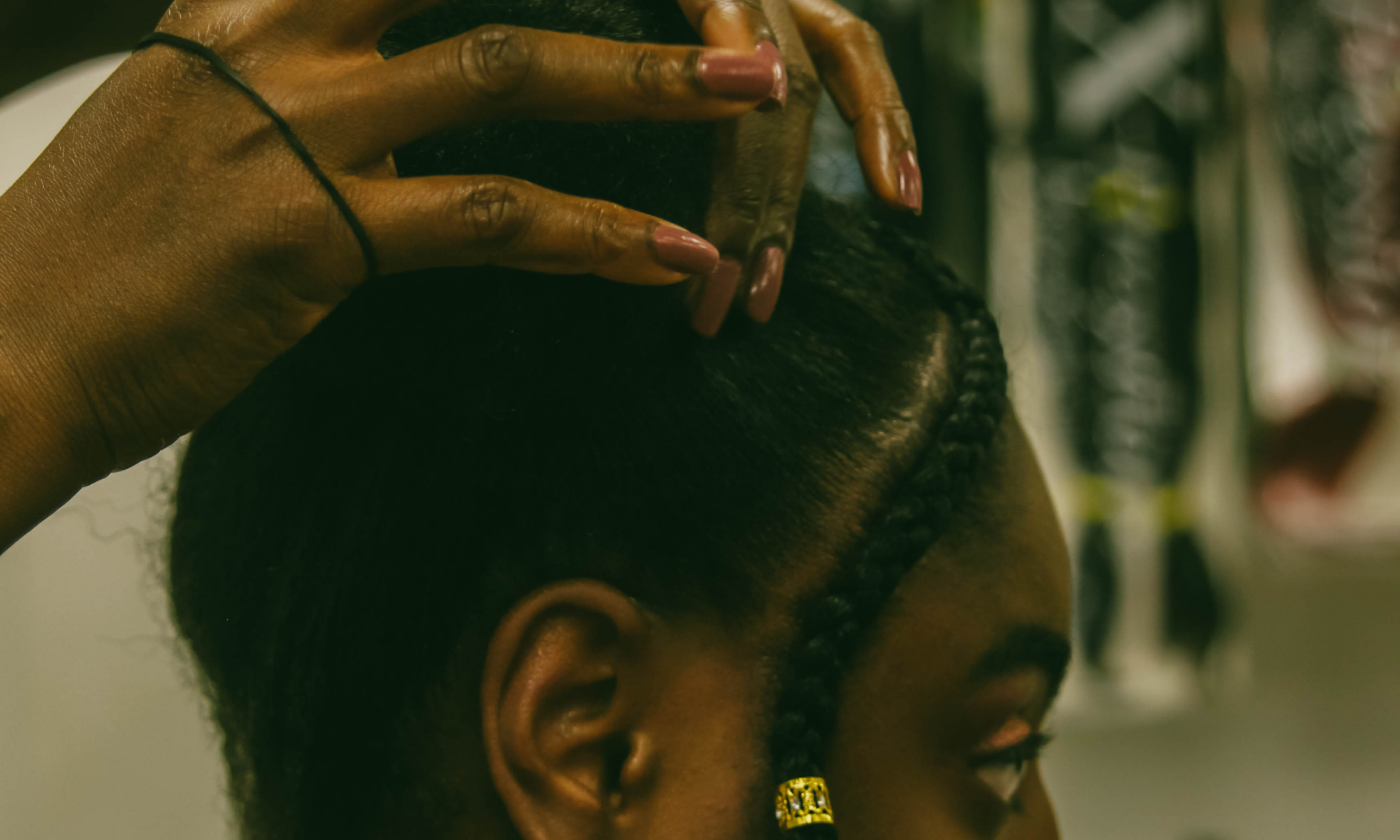
Photography by Yossy Akinsanya for gal-dem / Peckham Palms
Afro Answers: what do you mean I can’t use oils or butters? And what you need to know about hair loss
Trichologist Ebuni Ajiduah gets real about trending hair routines and breaks down the different types of alopecia.
Ebuni Ajiduah
24 Oct 2021
Family, gather in close, we need to talk! Has the natural hair community ever reminded you of a cult? Ok, hear me out. So initiation is shaving your head, renouncing your past life and vowing never to succumb to the creamy crack again. The TWA (teeny-weeny-afro) is a real sign of commitment and dedication to the cause. Buying products – a blood sacrifice showing how trapped you are – now you’ve swapped the regular hit of relaxer just to become a product junkie. But you know what makes all the failed twist outs worthwhile? The promise from the messiah on ‘how to be like me and grow waist-length hair in 30 days’.
Watching the natural hair community develop as a card-carrying member before progressing in my career as a stylist, and then later as a trichologist has been jarring. I too fell victim to the hair fads and trends some of which have caused a major divide in the community.
“Has the natural hair community ever reminded you of a cult?”
If you have any experience in the hair care industry, you would have come across methods or routines supposedly guaranteed to give you the best hair ever. While we can all be sucked in by a gorgeous fro or luscious locs, how much can we expect from these routines and hair challenges and are we being sucked into something similar to the fitness gurus selling booty workouts without disclosing their BBLs?
The curly girl method by Lorraine Massey was the first major one I saw online. In essence, you forgo shampoo and stick to co-washing and other tips outlined in the handbook that lean towards more ‘natural’ hair care products. This is when I woke up. No shampoo? No thanks, I don’t know about your scalp, but mine NEEDS to be cleansed and so I let that one slip me by. I mean, cleanliness is next to godliness and I can’t co-wash my sins away.
Of late, Black Girl Curls, founded by stylists and hair educators Aishia and Aeleise, have caused more than their fair share of ruckus with their 30-day hair detox that removes oils and butter from your regime. Now, this was one I could appreciate more.
The duo’s no-nonsense approach often leaves commenters in hysterics as they are unable to fathom a life devoid of coconut, jojoba, castor oil and shea butter. Even though their program focuses more on achieving a perfect wash-and-go, I resonate with their advice over DIYers who forget to list genetics as the number one ingredient in their recipes.
“Before starting a new regime, always question, do you have to spend a ton on products?”
I know people will swear up and down that a certain routine or product worked for them and yes, you may see a benefit as you are being more consistent. However, things can go wrong a lot more than they go right. Just type in ‘ruined my natural hair’ on YouTube and see how left some of these practices go.
What all of these hair challenges and routines have in common is great marketing and a catchy tag. Branding is everything, so if you can get your method to trend, that is currency. Sadly, many of these methods are based on personal experience and keep us buying and chasing a dream.
Before starting a new regime, always question, do you have to spend a ton on products, do you have to spend every waking hour dedicated to prep but never get to enjoy your hair? What are these person’s credentials? Do their peers offer the same general advice?
Afro hair can be incredibly simple. A good shampoo, conditioner and a few styling products are all it takes. If you are full of questions and not sure where to turn, join my monthly virtual wash day for salon vibes and easy to understand tips.
What are the types of hair loss?
Jokes always seem to fly about Black women and their hair – if we aren’t being berated about our hair texture, we are shamed for it ‘not growing’, ‘not having edges’, ‘ or ‘wearing horse hair’. So it is no wonder that the Black UK hair industry is worth approx £88 million.
All this focus on product, treatments and styling still isn’t helping Black women keep their hair in their scalps, so what is going wrong? Yes, I know aunty’s hand is strong and that scissor-happy stylist who cut off five inches of good hair took you out of the game early, but is that really the cause?
Fact is, to start reconnecting our hair with our scalp, we need to remember that hair growth largely depends on internal factors. As our good sis Lauryn Hill said, “how you gon’ win when you ain’t right within?”
During my consultations, I ask for a medical history, because issues like stress, periods and long-term illnesses can all wreak havoc with your body and hair. Honestly, your hair needs very little excuse to bounce – thankfully, it often makes a comeback but alopecia has many forms which need different levels of intervention and treatment.
Traction Alopecia – snatched edges
This is the type of hair loss that Black women are most associated with and strikes fear in most of us. The hair around the perimeter is much finer and more delicate so those heavy box braids and slick back buns are not always working in our favour even if we call them ‘protective’. There is only so much dragging the hair can take before it gives up and peaces out forever. The instant facelift (or contrast headache) is a sign your style is too tight. Unlay your baby hairs for longevity!
Telogen Effluvium – shedding galore
Hair sheds naturally at the end of the growth cycle before being replaced by new hair. This process can be disrupted by stress, pregnancy, illness or medication. Your body basically goes into aeroplane mode and shuts down non-essential functions to preserve or divert energy to where it is most needed. It usually takes about three months for the effects to be felt, leading to a massive panic, but the effects are largely short-lived – or at least, they are until the problem is resolved.
Androgenetic Alopecia – generational curse
Genetics play a big role in hair growth and hair loss, so looking at your parents can be a sign of what the future holds. Balding in men is easily recognisable but in women, it looks a little different. When hitting the age of menopause, there may be thinning on the top through the centre parting, it can happen earlier, but that is not common. This is a slow, steady progression giving you lots of time to seek professional help and try out treatments.
Central Centrifugal Cicatricial Alopecia – scarred for life
Central Centrifugal Cicatricial Alopecia is quite a mouthful and means permanent hair loss starting in the central scalp or crown. It predominantly affects Black women and often goes unnoticed or misdiagnosed for years. The immune system is kind of to blame here as well as a hint of genetics. Your defence team starts to see your hair as an opp and makes every effort to take them out. Symptoms are usually a burning sensation or breaking at the crown long before patches show as the scarring process takes years to complete. This can be treated and well managed but early intervention is needed to prevent widespread hair loss.
If you are worried about hair loss, your first step is always to seek advice from your GP, a Trichologist or Dermatologist.
For support and guidance join the Black girls with hair loss event to meet other women and share your experiences.

